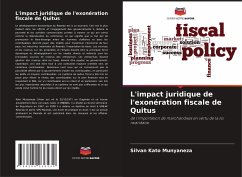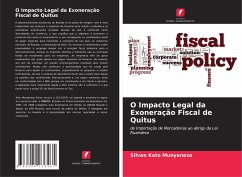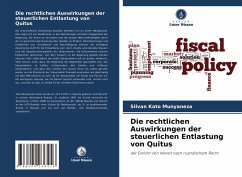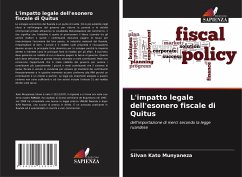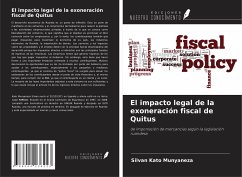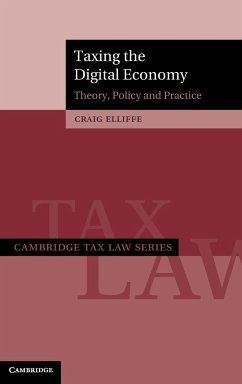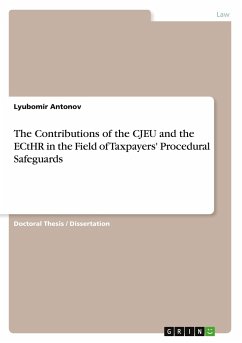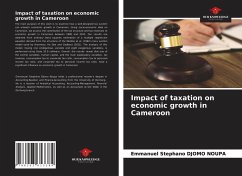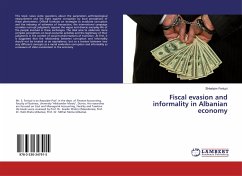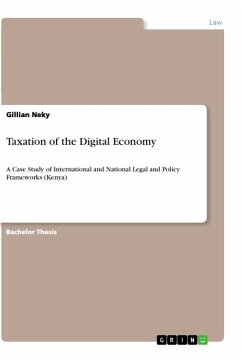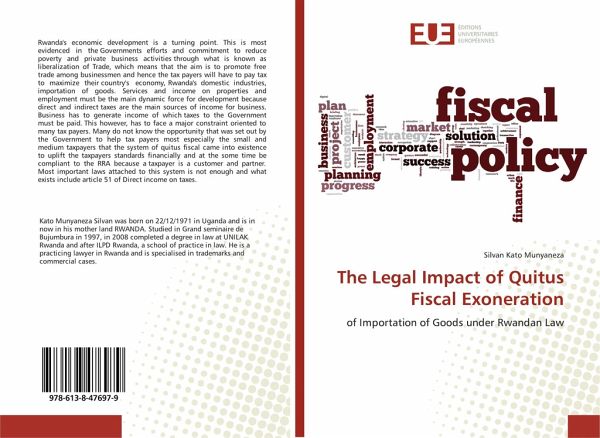
The Legal Impact of Quitus Fiscal Exoneration
of Importation of Goods under Rwandan Law
Versandkostenfrei!
Versandfertig in 6-10 Tagen
27,99 €
inkl. MwSt.

PAYBACK Punkte
14 °P sammeln!
Rwanda's economic development is a turning point. This is most evidenced in the Governments efforts and commitment to reduce poverty and private business activities through what is known as liberalization of Trade, which means that the aim is to promote free trade among businessmen and hence the tax payers will have to pay tax to maximize their country's economy, Rwanda's domestic industries, importation of goods. Services and income on properties and employment must be the main dynamic force for development because direct and indirect taxes are the main sources of income for business. Busines...
Rwanda's economic development is a turning point. This is most evidenced in the Governments efforts and commitment to reduce poverty and private business activities through what is known as liberalization of Trade, which means that the aim is to promote free trade among businessmen and hence the tax payers will have to pay tax to maximize their country's economy, Rwanda's domestic industries, importation of goods. Services and income on properties and employment must be the main dynamic force for development because direct and indirect taxes are the main sources of income for business. Business has to generate income of which taxes to the Government must be paid. This however, has to face a major constraint oriented to many tax payers. Many do not know the opportunity that was set out by the Government to help tax payers most especially the small and medium taxpayers that the system of quitus fiscal came into existence to uplift the taxpayers standards financially and at the sometime be compliant to the RRA because a taxpayer is a customer and partner. Most important laws attached to this system is not enough and what exists include article 51 of Direct income on taxes.



